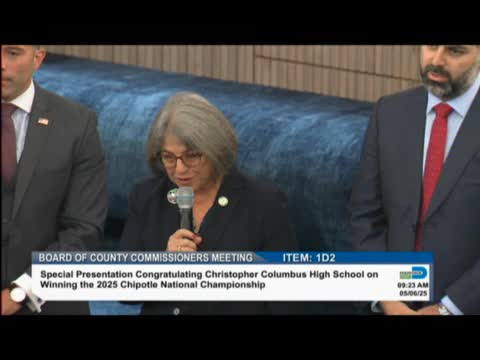Article not found
This article is no longer available. But don't worry—we've gathered other articles that discuss the same topic.

Miami-Dade honors 13 student winners in annual water conservation poster contest
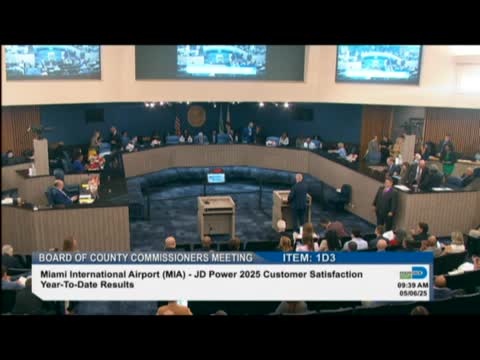
MIA climbs to fourth among U.S. mega airports in JD Power midyear rankings, officials say
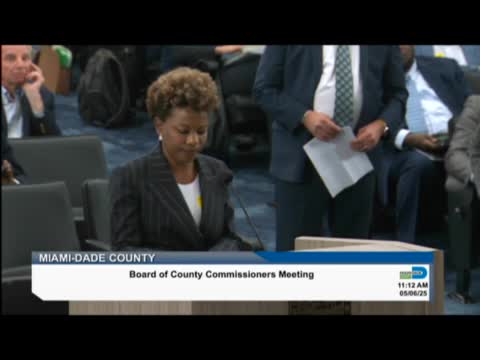
Commission forms procurement task force to review contracting and solid-waste agreements
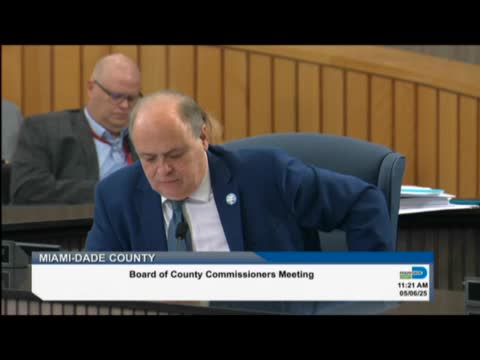
Commission approves conveyance and repairs for Family Action Network Movement site after amendment to create scholarship endowment
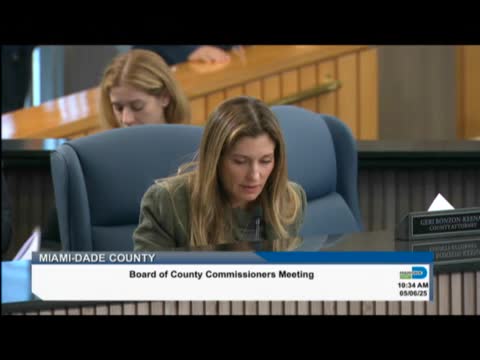
Board appoints Natalie Milian Orbis to fill District 6 seat; she pledges to be present for constituents
